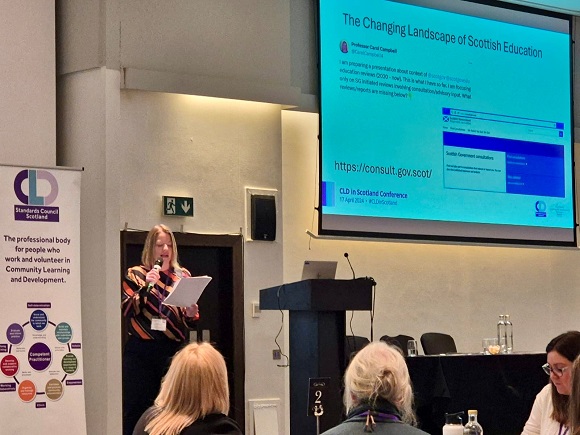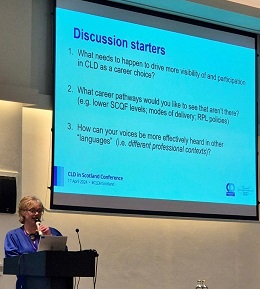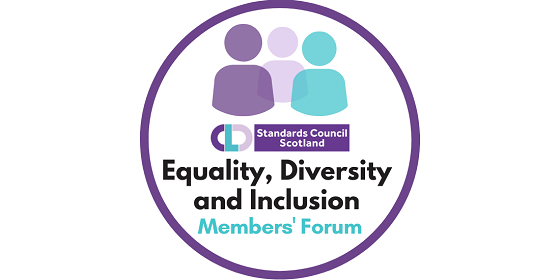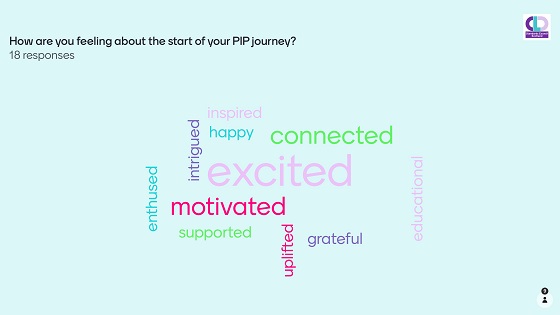Credit david-lopez on Unsplash
The CLD Standards Council was invited to attend the Cross-Party Group (CPG) on Volunteering on 25th January, to talk about the contribution of volunteers and volunteering within a Community Learning and Development context and explain how valuable the opportunity of volunteering is to people of all ages within community settings, as well as looking at the role of volunteers in supporting CLD as a sector.
As our Development Officer for Policy, Vikki was delighted to join the forty-five people from a variety of organisations across Scotland, as well as MSPs, who were in attendance. The presentation included background explanations on how CLD is a field of professional practice in Scotland which includes youth work, community-based adult learning, (including English for Speakers of Others Languages/ESOL & family learning), and community development, enabling people of all ages to identify their own individual and collective goals, to engage in learning and take action to bring about change for themselves and for their communities.
We felt it was important that we took the opportunity to highlight that CLD programmes and activities make positive contributions to a range of national and local policy outcomes in areas including education, lifelong learning, community empowerment, employability and skills, and health and wellbeing. Programmes and activities take place in community and educational settings and are run by professionally qualified CLD practitioners who are often supported by volunteers. We wanted to emphasise that volunteering with CLD provides a chance for individuals, groups and communities to actively participate in causes they care about. Whether it’s helping with homeless causes, supporting educational activities, or progressing environmental conservation, volunteering allows people to address pressing issues in their communities. We also recognised that volunteering can play a large part of the CLD delivery of learning opportunities, enabling individuals and groups to gain skills, knowledge and experiences which assist in their personal development as well as support steps into employment or progression to further and higher education.
Whilst it is evident that CLD volunteers play a vital role in the CLD sector, there is not a massive amount of data out there compared to other sectors. Rocket Science was commissioned in March 2018 by Education Scotland and the CLD Standards Council Scotland to conduct research to understand the CLD workforce in Scotland, including its volunteers. One of the key findings of the report is that ‘Volunteers are a hugely valued part of the CLD workforce’ and are seen by CLD practitioners and employers as a vital part of supporting communities.
There were some trends to note (2018):
- Volunteers in the public sector were slightly more likely to work a greater number of hours per week than in the third sector
- It was more common to volunteer more than five hours per week in Youth Work than in Community Development or Adult Learning, with around half of all functions performed by volunteers being face-to-face roles with learners or communities, while 29% were on Committee, Board or Governance work.
- When employers were asked whether they could recruit volunteers with the appropriate skills and competencies, the majority felt they could.
In 2018, CLD employers were also noting that the size of their workforce had changed, with a greater proportion stating that the number of paid workers in their organisation had decreased. Public sector employers noted that they were combatting reducing staff numbers by recruiting more volunteers. This suggests that employers in this area are having to mitigate the effects of diminishing budgets and staff numbers through recruiting a larger volunteer element to their workforce. Whilst we wonder what that landscape looks like now in 2024 with continual diminishing budgets being reported, we felt it important to critically explain that volunteers are not a cost-free option. Correctly supporting and utilising volunteers to deliver services demands investment in recruitment, supervision and training by professionally qualifies CLD workers, in addition to the costs faced regarding health and safety, any additional legislative requirements, such as PVGs, as well as offering accreditation where possible.
We also took the opportunity to highlight the benefits to volunteering with CLD, such as:
- Positive difference to an individual, group or issue in society
- Social interaction/Lower isolation
- Skills, confidence and experience opportunities
- Improvement in volunteers’ mental health and wellbeing
- Improved employment prospects and career related benefits
- Broadens life experiences
Vikki finished her presentation with some recent examples of volunteers, and their feedback on benefits and progression routes.
Learner-Volunteer A
“before I started I was in the house with agoraphobia, for 17 years. I was fading away, in the house with the blinds shut. I was relying on my children to do everything”
They stated that participating has given them increased confidence and “hunners of skills that I didn’t realise I had”
‘Learner-Volunteer A’ now volunteers with 5 different groups within their community.
“This has given me everything I ever wanted, and back to my old self. I am still getting educated every day as they tell me things and help me”
Student-Volunteer B
“volunteering meant more and more opportunities came out of the box, with hands on experience of all 3 elements of CLD”…… “as well as learned practicalities of CLD, I felt a growth in my knowledge and understanding of CLD, and even felt I could challenge lecturers and reference real practice”.
Once qualified ‘Student-Volunteer B’ went back to the centre they volunteered in and was offered employment as a sessional Youth Worker. Since then they have been successfully promoted to qualified CLD Worker and able to undertake a volunteer supervisor role “biggest privilege of my life, it’s taught me so much”.









